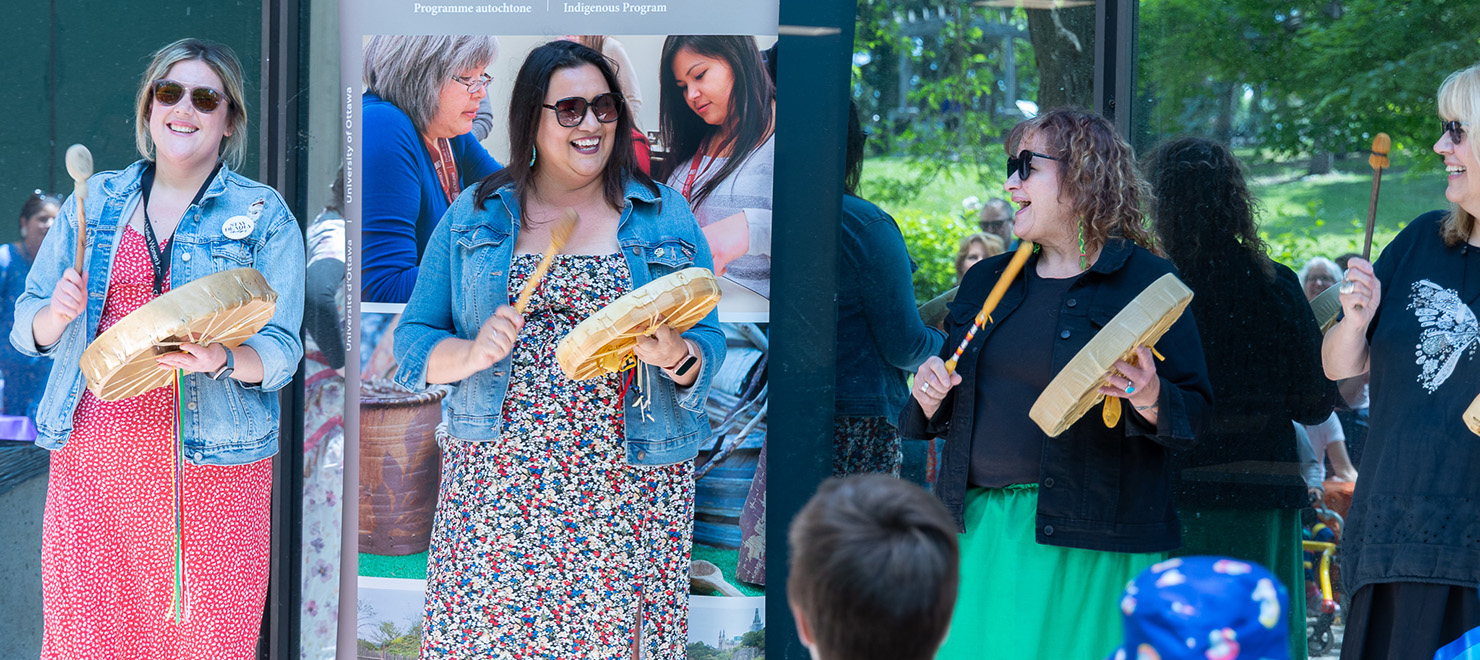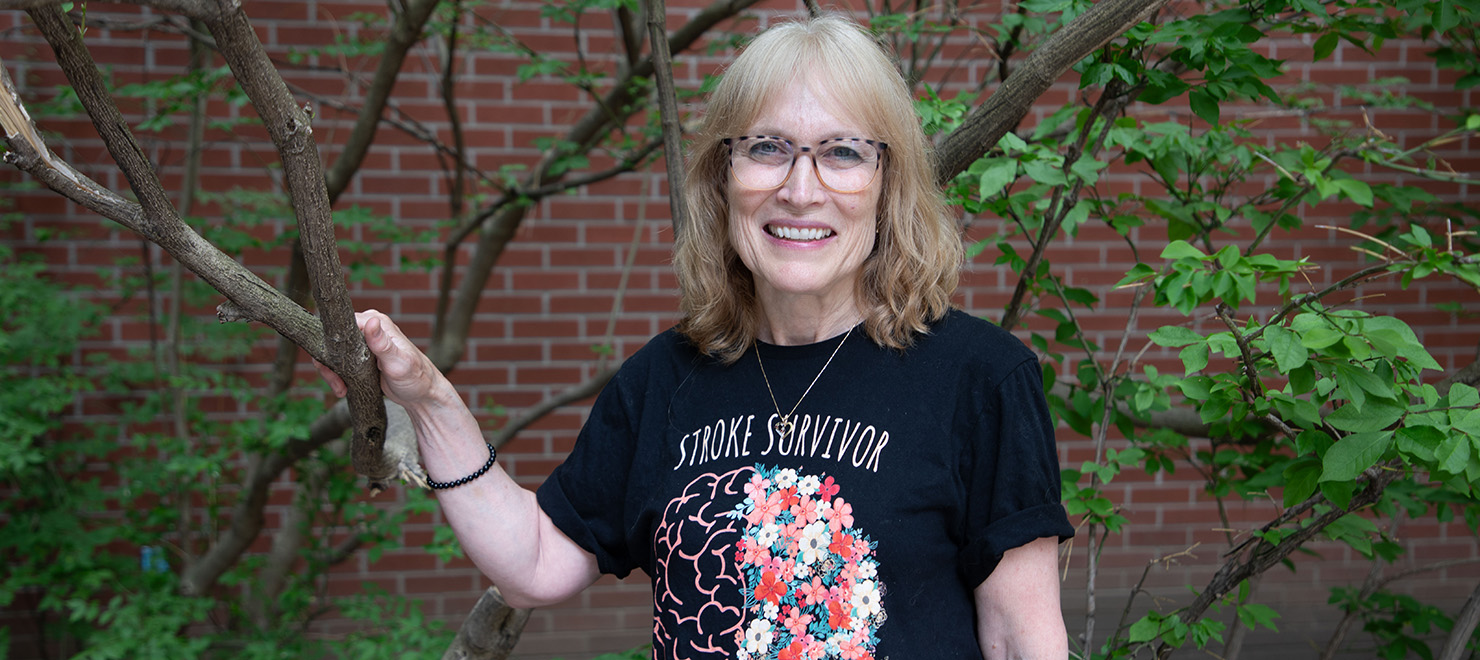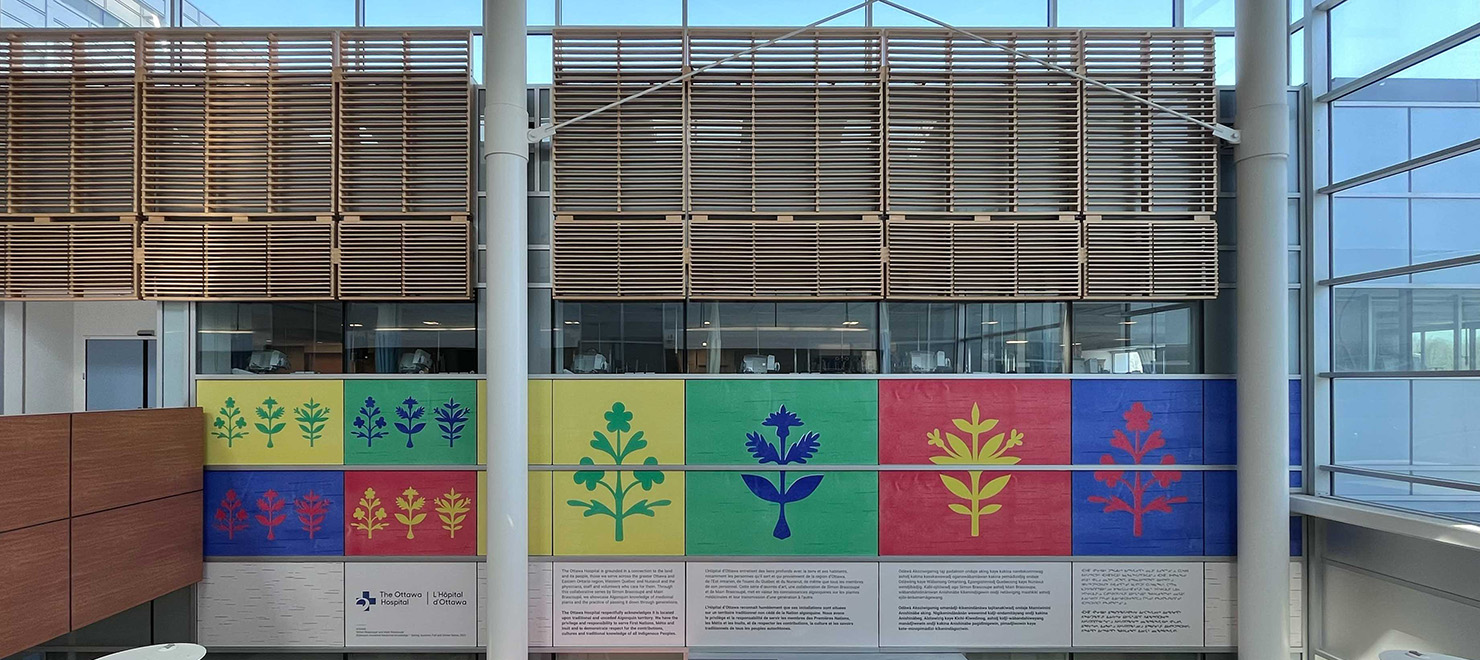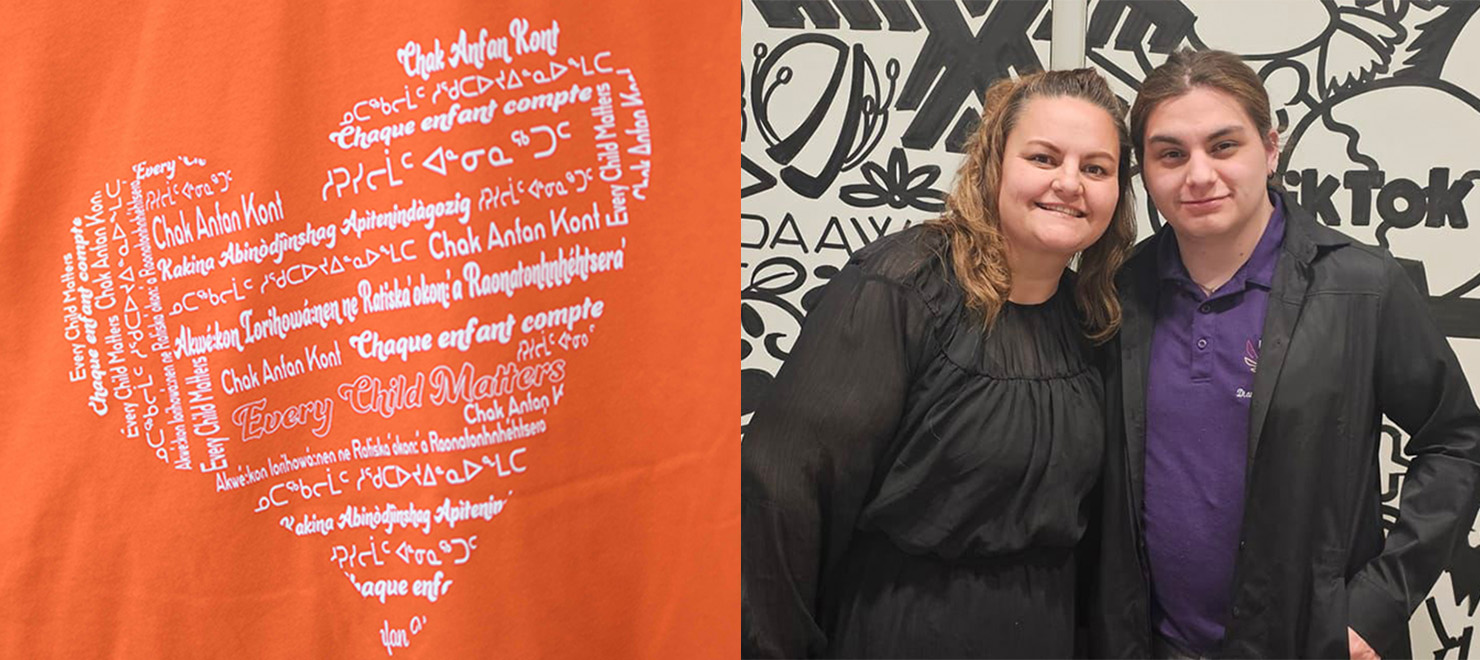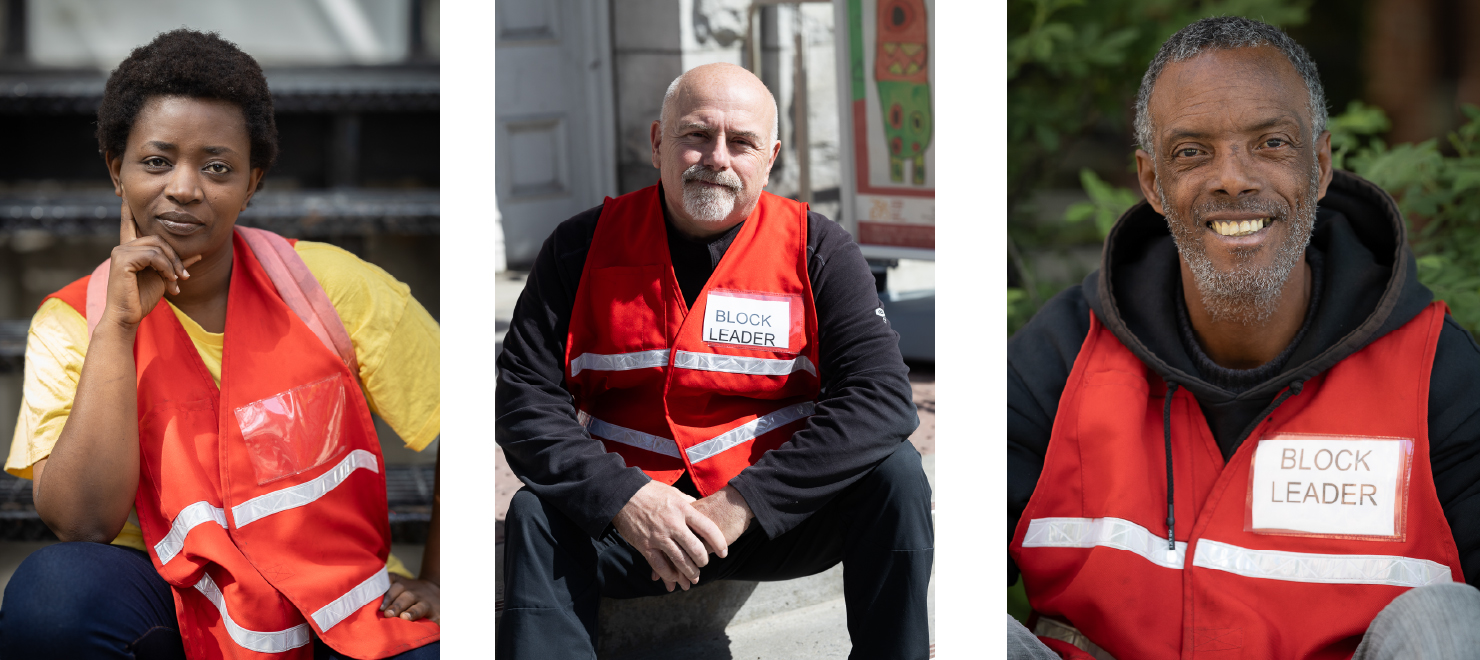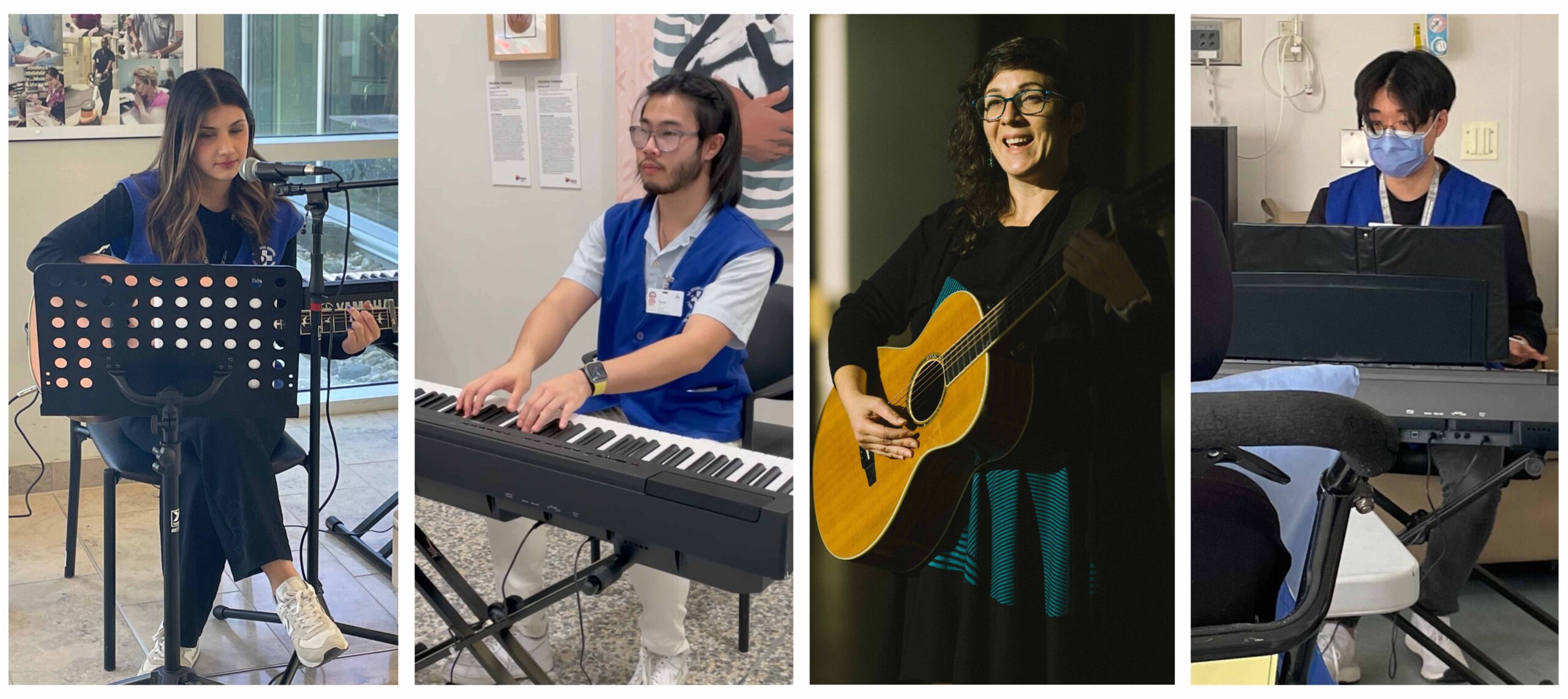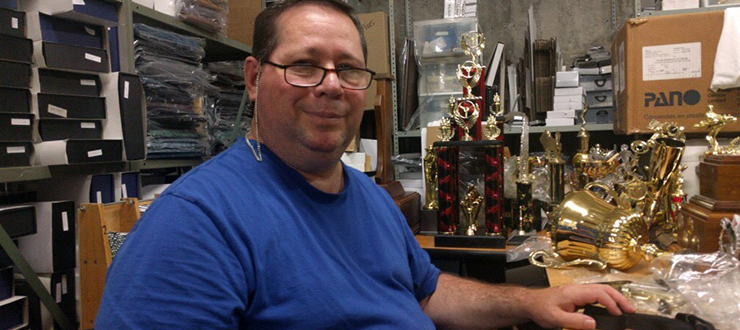
Stephen Rawlings put ribbons on medals as he shared his story about volunteering at Familiar Faces Engraving as part of his recovery from a brain injury.
Stephen Rawlings unpacks trophies and medals from their shipping boxes, puts ribbons on medals and helps the employees with whatever needs doing at Familiar Faces Engraving – a trophy shop in Ottawa.
He and fellow volunteer Bernel Hanley enjoy their work, and share another important point – they both experienced brain injuries and are volunteering at Familiar Faces as part of their recovery.
Volunteering is one of many strategies used by The Ottawa Hospital’s Robin Easey Centre (a residential home for patients recovering from brain injuries) to “help patients return to living in their communities,” said life-skills counselor Kathleen Wiltshire. Volunteering helps enhance their self-awareness, adjust to their injury and to daily living, and resume their careers.
“We’ve been very lucky to have a business near the Robin Easey Centre that’s willing to offer support and volunteer opportunities to our clients who are interested in returning to the workforce,” said Kathleen.
For the past 18 years, Familiar Faces has quietly offered those opportunities to people like Stephen and Bernel.
“Rehabilitation involves constructing a structured life, routines, knowing your limits, being punctual and reliable,” said Stephen. “Volunteering at Familiar Faces has done just that.” His brain cancer came as a surprise back in November 2015. He was a carpenter and a business owner in Smiths Falls, his hometown.

Bernel Hanley (left) loves volunteering at Familiar Faces Engraving, owned by Sherrolyn Perras. She has offered volunteer opportunities for the past 18 years to people like Bernel who are recovering from brain injuries.
“Being able to return to a work environment gives these patients a sense of accomplishment,” said Familiar Faces owner Sherrolyn Perras. “It’s a win-win situation for all.”
A brain injury can change someone’s life drastically, requiring patients and their families to adjust to many physical, mental and personality changes.
“I am not the same person,” said Stephen. “I lost my balance, my physical abilities, and my stamina. Sadly, I won’t be able to work full time or return to carpentry.”
“Some people don’t have any visible disabilities, but they have some limitations,” said Sherrolyn. “The centre brings over people who they think would enjoy it, who worked before, and have an interest in sports and manufacturing. Volunteering gives them a taste of being normal again and it makes me happy knowing I help them recover.”
Both Stephen and Bernel said they enjoy working with their hands, without deadlines or other pressures.
Bernel suffered a massive stroke 10 years ago and because of his disability, he couldn’t return to fixing cars. His recovery has included volunteering at Familiar Faces Engraving for the past eight years.
“I love coming here,” said Bernel. “It gives me purpose and I enjoy the social aspect of it because of the people I am with.”

Support patient care and research at
The Ottawa Hospital
You might also like…
Celebrating the summer solstice and National Indigenous Peoples Day: A photo essay
The summer solstice has deep spiritual and cultural significance for Indigenous communities around the world. Last week, we joined CHEO and uOttawa for a special celebration to mark this important time of year, and to recognize the rich cultures of First Nation, Inuit and Métis Peoples.
From survivor to supporter: Peer volunteers bring hope to patients recovering from stroke
Drawing on their own lived experiences as stroke survivors or caregivers, volunteers with March of Dimes Canada’s After Stroke Hospital Peer Connections program offer emotional support to those just beginning their recovery journey. Discover the difference they’re making and learn about how you can request support for a loved one — or become a beacon of hope yourself.
A guide to services at The Ottawa Hospital for Indigenous patients and families
At The Ottawa Hospital, we are committed to providing culturally safe care for First Nation, Inuit and Métis patients and families. We are working with Indigenous partners to identify ways we can make your time in hospital more welcoming. Here are some of the ways we’re doing that now.
More than a shirt: Orange shirts support healing and community
Pamela Meness, owner of Diamond Phoenix Creations, the Kitigan Zibi-based supplier of The Ottawa Hospital’s Every Child Matters orange t-shirts, says her business is about healing and community.
“It’s about giving them hope and purpose”: Ottawa Inner City Health’s Block Leaders program marks one year serving the community
Seven days a week, Block Leaders head out into the ByWard Market to help fellow members of their community who are unhoused or use drugs. They provide support to people in distress, respond to overdoses and even clean their neighbourhood — all with the goal of creating a safer and healthier community for everyone.
A volunteer program that taps into the power of music
Studies have shown that music can benefit the body, mind, relationships and community. Musical Moments is a program where volunteers play live music to support positive outcomes for patients, visitors and staff.


 To reset, hold the Ctrl key, then press 0.
To reset, hold the Ctrl key, then press 0.
